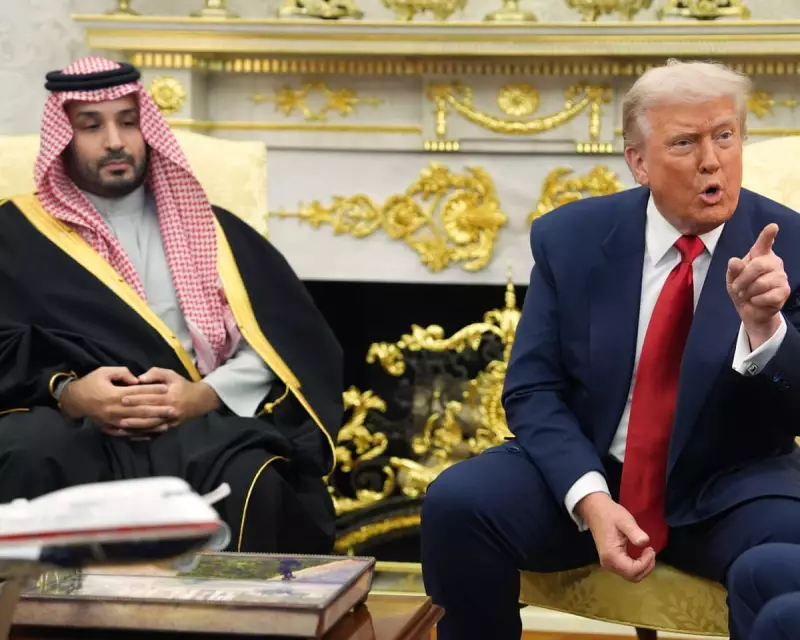
The political landscape in Washington witnesses a significant development this week as Saudi Crown Prince Mohammed bin Salman returns for an official state visit, hosted by former President Donald Trump. This reconciliation occurs precisely seven years after the CIA concluded MBS ordered the assassination of journalist Jamal Khashoggi.
The Khashoggi Legacy and Warning Signs
On November 16, 2018, a Friday night news alert shook the world: the CIA had determined that Saudi Arabia's crown prince directly ordered Jamal Khashoggi's assassination. The Washington Post journalist had been kidnapped from the Saudi consulate in Istanbul a month earlier, with reports suggesting his body was dismembered by Saudi operatives.
Karen Attiah, who served as Khashoggi's editor at the Washington Post's global opinion section, recalls collapsing onto her couch upon hearing the news, repeatedly uttering "alhumdulilah" - praise be to God in Arabic - despite not being Muslim herself. She describes Khashoggi as having taught her about "faith and looking for hope in all the wrong places."
Khashoggi's troubles with the Saudi regime began in 2016 when the kingdom banned him from writing after he published an op-ed warning about Donald Trump's political rise. He remained silent for a year until MBS initiated a widespread crackdown on businessmen, writers, and mild critics, imprisoning many of them. This prompted Khashoggi to flee to the United States in self-exile.
The Erosion of Media Freedom
In September 2017, Attiah invited Khashoggi to write for the Washington Post's global opinion section. His piece, "Saudi Arabia was not always this repressive, but now it's unbearable," broke his year-long silence. He subsequently became a regular columnist for the publication.
Tragically, a year later, Saudi authorities had Khashoggi killed. In the aftermath, Trump administration officials worked to rehabilitate Saudi Arabia's image. Jared Kushner, Trump's son-in-law and senior advisor, reportedly counseled MBS on how to "weather the storm" of international condemnation. Last year, Kushner's equity firm received $2 billion from Saudi Arabia's private equity firm.
Attiah notes with concern that the Washington Post has since dismantled the global opinion section that published Khashoggi's work. The Jamal Khashoggi fellowship, designed to support writers speaking out against authoritarian regimes, has been allowed to fade away. Meanwhile, the newspaper's opinion section now operates under owner Jeff Bezos's directive to focus solely on "free markets" and "personal liberties," leading to the removal of voices that criticised censorship and political repression.
The Broader Saudification Trend
This phenomenon extends beyond media into what Attiah terms "the Saudification of western cultural spaces." Saudi Arabia has invested heavily in soft power initiatives, including sportswashing through LIV golf tournaments and the purchase of Newcastle United football club. The kingdom has also funded extensive tourism campaigns, paying online influencers substantial sums to post curated content about their visits to Saudi Arabia.
Khashoggi frequently warned about the hollow nature of these visions, emphasising that behind the royal family's glitz and promises of futuristic cities lay significant poverty and discontent. He took pride in his Washington Post platform, hoping it could model how voices like his could be heard.
As MBS returns to Washington, the Washington Post editorial board has notably failed to mention Khashoggi's name in connection with the visit. Pro-Saudi voices argue that moral concerns about human rights shouldn't interfere with the US-Saudi partnership, given the substantial financial stakes and strategic interests in normalising Saudi-Israeli relations.
However, Attiah contends that Khashoggi's murder served as a warning about the impending loss of freedom and rise of censorship that would eventually sweep across America. While billionaires and deal brokers benefit from these elite arrangements, ordinary Americans gain little from such partnerships.





